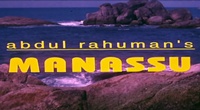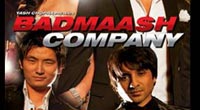A passport is a travel document, usually issued by a country's government, that certifies the identity and nationality of its holder primarily for the purpose of international travel. Standard passports may contain information such as the holder's name, place and date of birth, photograph, signature, and other identifying information. Many countries are moving towards including biometric information in a microchip embedded in the passport, making them machine-readable and difficult to counterfeit. As of 2017, there are over 120 jurisdictions issuing these e-Passports. Previously issued passports usually remain valid until each expires.
A passport holder is normally entitled to enter the country that issued the passport, though some people entitled to a passport may not be full citizens with right of abode. A passport does not of itself create any rights in the country being visited or obligate the issue country in any way, such as providing consular assistance. Some passports attest to status as a diplomat or other official, entitled to rights and privileges such as immunity from arrest or prosecution.
Many countries normally allow entry to holders of passports of other countries, sometimes requiring a visa also to be obtained, but this is not an automatic right. Many other additional conditions, such as not being likely to become a public charge for financial or other reasons, and the holder not having been convicted of a crime, may apply. Where a country does not recognise another, or is in dispute with it, it may prohibit the use of their passport for travel to that other country, or may prohibit entry to holders of that other country's passports, and sometimes to others who have, for example, visited the other country.
Some countries and international organisations issue travel documents which are not standard passports, but enable the holder to travel internationally to countries that recognise the documents. For example, stateless persons are not normally issued a national passport, but may be able to obtain a refugee travel document or the earlier "Nansen passport" which enables them to travel to countries which recognise the document, and sometimes to return to the issuing country.
Passports are often requested in other circumstances to confirm identification such as checking in to a hotel or when changing money to a local currency.
Contents
History
One of the earliest known references to paperwork that served in a role similar to that of a passport is found in the Hebrew Bible. Nehemiah 2:7-9, dating from approximately 450 BC, states that Nehemiah, an official serving King Artaxerxes I of Persia, asked permission to travel to Judea; the king granted leave and gave him a letter "to the governors beyond the river" requesting safe passage for him as he traveled through their lands.
In the medieval Islamic Caliphate, a form of passport was the bara'a, a receipt for taxes paid. Only people who paid their zakah (for Muslims) or jizya (for dhimmis) taxes were permitted to travel to different regions of the Caliphate; thus, the bara'a receipt was a "traveler's basic passport."
Etymological sources show that the term "passport" is from a medieval document that was required in order to pass through the gate (or "porte") of a city wall or to pass through a territory. In medieval Europe, such documents were issued to foreign travelers by local authorities (as opposed to local citizens, as is the modern practice) and generally contained a list of towns and cities the document holder was permitted to enter or pass through. On the whole, documents were not required for travel to sea ports, which were considered open trading points, but documents were required to travel inland from sea ports.
King Henry V of England is credited with having invented what some consider the first passport in the modern sense, as a means of helping his subjects prove who they were in foreign lands. The earliest reference to these documents is found in a 1414 Act of Parliament. In 1540, granting travel documents in England became a role of the Privy Council of England, and it was around this time that the term "passport" was used. In 1794, issuing British passports became the job of the Office of the Secretary of State. The 1548 Imperial Diet of Augsburg required the public to hold imperial documents for travel, at the risk of permanent exile.
A rapid expansion of railway infrastructure and wealth in Europe beginning in the mid-nineteenth century led to large increases in the volume of international travel and a consequent unique dilution of the passport system for approximately thirty years prior to World War I. The speed of trains, as well as the number of passengers that crossed multiple borders, made enforcement of passport laws difficult. The general reaction was the relaxation of passport requirements. In the later part of the nineteenth century and up to World War I, passports were not required, on the whole, for travel within Europe, and crossing a border was a relatively straightforward procedure. Consequently, comparatively few people held passports.
During World War I, European governments introduced border passport requirements for security reasons, and to control the emigration of people with useful skills. These controls remained in place after the war, becoming a standard, though controversial, procedure. British tourists of the 1920s complained, especially about attached photographs and physical descriptions, which they considered led to a "nasty dehumanization".
In 1920, the League of Nations held a conference on passports, the Paris Conference on Passports & Customs Formalities and Through Tickets. Passport guidelines and a general booklet design resulted from the conference, which was followed up by conferences in 1926 and 1927.
While the United Nations held a travel conference in 1963, no passport guidelines resulted from it. Passport standardization came about in 1980, under the auspices of the International Civil Aviation Organization (ICAO). ICAO standards include those for machine-readable passports. Such passports have an area where some of the information otherwise written in textual form is written as strings of alphanumeric characters, printed in a manner suitable for optical character recognition. This enables border controllers and other law enforcement agents to process these passports more quickly, without having to input the information manually into a computer. ICAO publishes Doc 9303 Machine Readable Travel Documents, the technical standard for machine-readable passports. A more recent standard is for biometric passports. These contain biometrics to authenticate the identity of travellers. The passport's critical information is stored on a tiny RFID computer chip, much like information stored on smartcards. Like some smartcards, the passport booklet design calls for an embedded contactless chip that is able to hold digital signature data to ensure the integrity of the passport and the biometric data.
Issuance
Historically, legal authority to issue passports is founded on the exercise of each country's executive discretion (or Crown prerogative). Certain legal tenets follow, namely: first, passports are issued in the name of the state; second, no person has a legal right to be issued a passport; third, each country's government, in exercising its executive discretion, has complete and unfettered discretion to refuse to issue or to revoke a passport; and fourth, that the latter discretion is not subject to judicial review. However, legal scholars including A.J. Arkelian have argued that evolutions in both the constitutional law of democratic countries and the international law applicable to all countries now render those historical tenets both obsolete and unlawful.
Under some circumstances some countries allow people to hold more than one passport document. This may apply, for example, to people who travel a lot on business, and may need to have, say, a passport to travel on while another is awaiting a visa for another country. The UK for example may issue a second passport if the applicant can show a need and supporting documentation, such as a letter from an employer.
National conditions
Many countries issue only one passport to each national (an exception is the Family Passport, see below under "Types"). When passport holders apply for a new passport (commonly, due to expiration of an old passport or lack of blank pages), they may be required to surrender the old passport for invalidation. In some circumstances an expired passport is not required to be surrendered or invalidated (for example, if it contains an unexpired visa).
Under the law of most countries, passports are government property, and may be limited or revoked at any time, usually on specified grounds, and possibly subject to judicial review. In many countries, surrender of the passport is a condition of granting bail in lieu of imprisonment for a pending criminal trial.
Each country sets its own conditions for the issue of passports. For example, Pakistan requires applicants to be interviewed before a Pakistani passport will be granted. When applying for a passport or a national ID card, all Pakistanis are required to sign an oath declaring Mirza Ghulam Ahmad to be an impostor prophet and all Ahmadis to be non-Muslims.
Some countries limit the issuance of passports, where incoming and outgoing international travels are highly regulated, such as North Korea, where general use passports are the privilege of a very small number of people trusted by the government. Other countries put requirements on some citizens in order to be granted passports, such as Finland, where male citizens aged 18–30 years must prove that they have completed, or are exempt from, their obligatory military service to be granted an unrestricted passport; otherwise a passport is issued valid only until the end of their 28th year, to ensure that they return to carry out military service. Other countries with obligatory military service, such as Syria, have similar requirements.
National status
Passports contain a statement of the nationality of the holder. In most countries, only one class of nationality exists, and only one type of ordinary passport is issued. However, several types of exceptions exist:
Multiple classes of nationality in a single country
The United Kingdom has a number of classes of United Kingdom nationality due to its colonial history. As a result, the UK issues various passports which are similar in appearance but representative of different nationality statuses which, in turn, has caused foreign governments to subject holders of different UK passports to different entry requirements.
Multiple types of passports, one nationality
The People's Republic of China (PRC) authorizes its Special Administrative Regions of Hong Kong and Macau to issue passports to their permanent residents with Chinese nationality under the "one country, two systems" arrangement. Visa policies imposed by foreign authorities on Hong Kong and Macau permanent residents holding such passports are different from those holding ordinary passports of the People's Republic of China. A Hong Kong Special Administrative Region passport (HKSAR passport) permits visa-free access to many more countries than ordinary PRC passports.
The three constituent countries of the Danish Realm have a common nationality. Denmark proper is a member of the European Union, but Greenland and Faroe Islands are not. Danish citizens residing in Greenland or Faroe Islands can choose between holding a Danish EU passport and a Greenlandic or Faroese non-EU Danish passport.
Special nationality class through investment
In rare instances a nationality is available through investment. Some investors have been described in Tongan passports as 'a Tongan protected person', a status which does not necessarily carry with it the right of abode in Tonga.
Passports without sovereign territory
Several entities without a sovereign territory issue documents described as passports, most notably Iroquois League, the Aboriginal Provisional Government in Australia and the Sovereign Military Order of Malta. Such documents are not necessarily accepted for entry into a country.
Validity
Watch movie Passport online on Amazon
Watch movie Passport online
Watch The Movie On PrimeLuck By Chance Full HD Movie Download

Justice Chowdhary Full HD Movie Download

Roja Full HD Movie Download

The Great Gambler Full HD Movie Download

Aur Ek Prem Kahani Full HD Movie Download

Devta Full HD Movie Download

Dhan Daulat Full HD Movie Download

Gharana (1989) Full HD Movie Download
.jpg)
Kaliyugam Full HD Movie Download

Inspector Kiran Full HD Movie Download

Atma Katha Full HD Movie Download

Manassu Full HD Movie Download

Mangni Full HD Movie Download

Raju Vedale Full HD Movie Download

Joshi India Today Full HD Movie Download

Swayamvaram Full HD Movie Download

Darithapina Mahnishi Full HD Movie Download

Vaddu Bava Thappu Full HD Movie Download

S.P.Shankar Full HD Movie Download

Aar Paar Full HD Movie Download

Badmaash Company Full HD Movie Download

Download latest Movie from bollywood
- 1> baaghi 3
- 2> THE SKY IS PINK MOVIE FULL STORY AND REVIEW
- 3> Luka Chuppi
- 4> TO ALL THE BOYS I’VE LOVED BEFORE
- 5> Kabir Singh
- 6> Street Dancer 3D
- 7> Simmba
- 8> Gone Girl
- 9> The Girl Who Lived
- 10> Ludo
- 11> DILWALE DULHANIA LE JAYENGE
- 12> GUILTY
- 13> The Godfather
- 14> Adventures of Rusty
- 15> Sooryavanshi
- 16> Satyameva Jayate 2
- 17> Thappad
- 18> Bhool Bhulaiyaa 2
- 19> KGFChapter 2
- 20> Mardaani 2
- 21> Pinjar
- 22> Shivaji maharaj
- 23> Ek Villian 2
- 24> Hungama 2
- 25> Divergent
- 26> Mumbai Saga
- 27> The Internship
- 28> HIT (telugu)
- 29> Panga
- 30> The perfect date
- 31> 16 December
- 32> Gopala Gopala (Telugu)
- 33> Brahmastra
- 34> Gangubai Kathiawadi
- 35> Manmadhudu
- 36> Nenu local
- 37> Mahanati
- 38> Shatamanam bavathi
- 39> Lagaan
- 40> After
- 41> MOM
- 42> Shamshera
- 43> Raguvaran BTech
- 44> Khakee
- 45> The villain
- 46> OM
- 47> Mr. perfect
- 48> Bueatifull mind
- 49> Hichki
- 50> Gabbar Singh
- 51> Jogi
- 52> Before Sunrise
- 53> Before Sunset
- 54> Before Midnight
- 55> The Big Bull
- 56> Top Gun: Maverick
- 57> The Purge
- 58> The Sky is Pink
- 59> Laxmmi Bomb
- 60> Sadak 2
- 61> Sufna
- 62> Prithviraj
- 63> PK
- 64> Coolie No 1(2020)
- 65> Black Widow
- 66> Dear Zindagi
- 67> Dil Bechara
- 68> PHIR HERA PHERI
- 69> WAR
- 70> Dostana
- 71> RRR: Roudram Ranam Rudhiram
- 72> Maidan
- 73> Dabbang 3
- 74> Chhalaang
- 75> life as we know it
- 76> SherShaah
- 77> Sandeep Aur Pinky Faraar
- 78> Event Horizon
- 79> 83
- 80> Radhe: Your Most Wanted Bhai
- 81> Gunjan Saxena: The Kargil Girl
- 82> Mr India
- 83> Vivah
- 84> Anokha Bandhan
- 85> Ghost
- 86> Bhoot: Part One - The Haunted Ship
- 87> Haseen Dilruba
- 88> Laal Singh Chaddha
- 89> Qismat
- 90> Rajput
- 91> Drive
- 92> Dil Chahta Hai
- 93> Dil Ki Baazi
- 94> Dil Ka Rishta
- 95> Teesri Manzil
- 96> Dil
- 97> Love Aaj Kal
- 98> Khaali Peeli
- 99> Bunty Aur Babli 2
- 100> Atrangi Re
- 101> Gulabo Sitabo
- 102> Jodi
- 103> Suraj Pe Mangal Bhari
- 104> Deewana
- 105> Attack
- 106> Sardar Udham Singh
- 107> Toofan
- 108> THE LOVEBIRDS
- 109> Jersey
- 110> Ginny Weds Sunny
- 111> Thalaivi
- 112> Shiddat
- 113> Angels vs Zombies
- 114> Koi Mil Gya
- 115> Thank God
- 116> Bhuj: The Pride of India
- 117> Hum Aapke Hain Kaun
- 118> The Platform
- 119> Bird Box
- 120> Roohi Afzana
- 121> Torbaaz
- 122> Nikamma
- 123> World War Z
- 124> Extraction
- 125> Train to Busan
- 126> Life of Pi
- 127> SHAADI MEIN JROOR AANA
- 128> Himmat Aur Mehnat
- 129> To All The Boys: P.S. I Still Love You
- 130> Mimi
- 131> Good Newwz
- 132> Shubh Mangal Zyada Saavdhan
- 133> Raabta
- 134> Harry Potter and the Philosopher's Stone
- 135> Harry Potter and the Chamber of Secrets
- 136> Chhapaak
- 137> War of the Worlds
- 138> Harry Potter and the Prisoner of Azkaban
- 139> Harry Potter and the Goblet of Fire
- 140> MURDER MYSTERY
- 141> Shakuntala Devi
- 142> Bachchan Pandey
- 143> Jayeshbhai Jordar
- 144> Sheer Qorma
- 145> Saina
- 146> 'O' Pushpa I hate tears
- 147> Kedarnath
- 148> MS Dhoni The Untold Story
- 149> Chhichhore
- 150> Badhaai Ho
- 151> Unstoppable
- 152> Oz the Great And Powerful
- 153> The Girl on the Train
- 154> Haathi Mere Saathi 2020
- 155> The Conjuring: The Devil Made Me Do It
- 156> Gandhi Se Pehle Gandhi
- 157> The Song of Scorpions
- 158> Srimanthudu
- 159> Hello Guru Prema Kosame
- 160> Beauty and The Beast
- 161> Black Panther
- 162> Charlie and the Chocolate Factory
- 163> Bole Chudiyan
- 164> Fidaa
- 165> Duvvada Jagannadham
- 166> Bruce Lee: The Fighter
- 167> Hyper
- 168> Yaara
- 169> Red (2020)
- 170> Shivam
- 171> That Is Mahalakshmi
- 172> Nishabdham
- 173> Aashram 2020 web series
- 174> Laxmii
- 175> Mismatched
- 176> STUDENT OF THE YEAR 2
- 177> NAIL POLISH
- 178> Ramprasad Ki Tehrvi
- 179> KAAGAZ
- 180> 12 o Clock
- 181> The Power
- 182> bolo hau
- 183> Tribhanga
- 184> JAMUN
- 185> Madam Chief Minister
- 186> Maasaab
- 187> Aadhaar
- 188> Tanhaji
- 189> Bhaagi 3
- 190> Bhootnath
- 191> MALANG
- 192> Jai Mummy Di
- 193> Haathi Mere Saathi 2021
- 194> Shakeela
- 195> Unpaused
- 196> Annayya
- 197> Vamsoddharakudu
- 198> Mrugaraju
- 199> Narasimha Naidu
- 200> Sankranti
- 201> Manasu Maata Vinadhu
- 202> Anjaane
- 203> Apaharan
- 204> Bachke Rehna Re Baba
- 205> Bewafaa
- 206> Roohi
- 207> Radhe
- 208> Zindagi Khoobsoorat Hai
- 209> Yeh Mohabbat Hai
- 210> Yeh Kya Ho Raha Hai?
- 211> The Tomorrow War
- 212> DehradunDiary
- 213> Meri Shaadi Karaoo
- 214> Matruu Ki Bijlee Ka Mandola
- 215> No One Killed Jesica
- 216> Aag Ka Goola
- 217> Eight Million Dollars
- 218> Three Hundred
- 219> Cats and Dog
- 220> Decoy
- 221> Gold Rush
- 222> You Have Got Mail
- 223> Final Destination three
- 224> Tofan
- 225> Jungle
Request for Download movie Passport
- Bollywood movies
- Latest Bollywood movies
- Download all bengali movies
- Download all bhojpuri movies
- Download all english movies
- Download all gujarati movies
- Download all hindi movies
- Download all kannada movies
- Download all malayalam movies
- Download all marathi movies
- Download all oriya movies
- Download all punjabi movies
- Download all tamil movies
- Download all telugu movies
- Bollywood action movies
- Bollywood adventure movies
- Bollywood animation movies
- Bollywood classical movies
- Bollywood comedy movies
- Bollywood crime movies
- Bollywood devotional movies
- Bollywood documentary movies
- Bollywood drama movies
- Bollywood family movies
- Bollywood fantasy movies
- Bollywood historical movies
- Bollywood history movies
- Bollywood horror movies
- Bollywood musical movies
- Bollywood mystery movies
- Bollywood mythological movies
- Bollywood patriotic movies
- Bollywood romance movies
- Bollywood romantic movies
- Bollywood sci-fi movies
- Bollywood social movies
- Bollywood spiritual movies
- Bollywood sports movies
- Bollywood suspense movies
- Bollywood thriller movies
- Bollywood war movies
- Hot actress list
- Hot gujarati actress list
- Hot tamil actress list
- Hot bhojpuri actress list
- Hot assam actress list
- Hot bihari actress list
- Hot jammu and kashmir actress list
- Hot gujarati actress list
- Hot haryana actress list
- Hot konkani actress list
- Hot marathi actress list
- Hot odia actress list
- Hot punjabi actress list
- Hot rajasthani actress list
- Hot kannada actress list
- Hot malayalam actress list
- Hot telugu actress list
- Hot tulu actress list
- Hot Actress list from Indian city
- Hot actress list from ahmedabad
- Hot actress list from alappuzha
- Hot actress list from bangalore
- Hot actress list from bangalore
- Hot actress list from bhopal
- Hot actress list from chandigarh
- Hot actress list from chennai
- Hot actress list from guwahati
- Hot actress list from hyderabad, india
- Hot actress list from indore
- Hot actress list from jaipur
- Hot actress list from kannur
- Hot actress list from kochi
- Hot actress list from kolkata
- Hot actress list from kollam
- Hot actress list from kottayam
- Hot actress list from kozhikode
- Hot actress list from lucknow
- Hot actress list from madurai
- Hot actress list from mangalore
- Hot actress list from mumbai
- Hot actress list from mysore
- Hot actress list from new delhi
- Hot actress list from patna
- Hot actress list from pune
- Hot actress list from thiruvananthapuram
- Hot actress list from thrissur
- Hot actress list from tiruchirappalli
- Hot actress list from vijayawada
- Hot actress list from visakhapatnam
- All Bollywood Movies
- Bollywood Celeb
- >Art Director
- >Audiography
- >Background Music
- >Banner
- >Choreographer
- >Cinematographer
- >Costume Designer
- >Dialogue Writer
- >Director
- >Distributor
- >Editor
- >Executive Producer
- >Hair Stylist
- >Lyricist
- >Music Director
- >Photographer
- >Playback Singers
- >Presenter
- >Producer
- >Production Company
- >Production Designer
- >Screenplay
- >Singer
- >Sound
- >Actor
- >Story Writer
- >Studio
- >Video Director
- >Miscellaneous
- >Publicity (pro)
- >Web Creator
- >Production Labs
- >Publicity Design
- >Publicity Stills
- >Writer
- >Miscellaneous Artists
- >Visual Effects
- >Reporter
- >Music Company
- >Shooting Studios
- >Picturised On
- >Line Producer
- >Co Producer
- >Asst Director
- >Casting Director
- >Cinematography
- >Choreography
- >Dialouge
- >Editing
- >Lyrics
- >Music
- >Story
- >Playback Singer Female
- >Playback Singer Male
- >Actor In A Comic Role (male/female)
- >Child Artiste
- >Ensemble Cast
- >Actor Popular Choice (male)
- >Actor Popular Choice (female)
- >Sa Re Ga Ma Pa Song Of The Year
- >Actor In Supporting Role
- >Actress In Supporting Role
- >Actor In Leading Role
- >Art Direction
- >Actress In Leading Role
- >Sound Recording
- >Costume Design
- >Special Effects
- >Action
- >Actor In A Negative Role
- >Lifetime Achievement Award
- >Cinematic Exellence (director)
- >Cinematic Exellence (male)
- >Cinematic Exellence (female)
- >International Male Icon
- >International Female Icon
- >Actor In A Supporting Role (male)
- >Actor In A Supporting Role (female)
- >Actor In A Comic Role
- >Playback Singer (male)
- >Playback Singer (female)
- >Most Promising Debut (female)
- >Most Promising Debut (male)
- >Most Promising Director
- >Sound Design
- >Lifetime Jodi
- >Marketed Film
- >Jury Award For Best Actor
- >Jury Award For Best Actress
- >Jury Award For Best Film
- >Jury Award For Best Director
- >Playback Singer(male)
- >Lifetime Acheivement Award (male)
- >Excellence Award
- >Jodi Award
- >Performer Of The Year
- >Presented By
